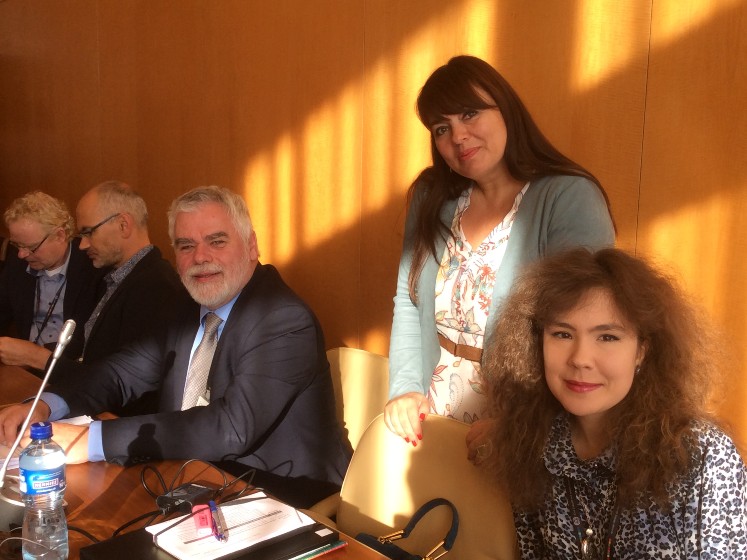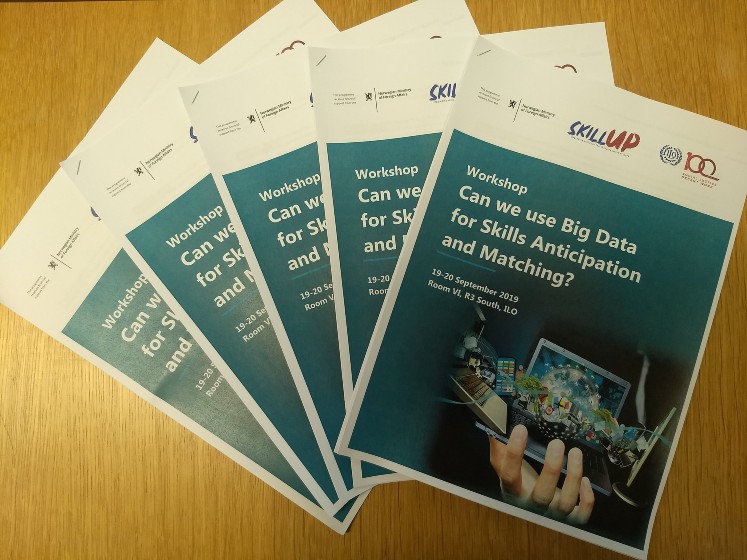Initiating Collaboration
My collaboration with Burning Glass Technologies (BGT) - a leading real-time job market data provider - played a key role in shaping the trajectory of my PhD. It came about thanks to Prof Alan Manning who knew that I was doing research on skills shortages and introduced me to Giselle Cory who at that time was working on a joint IPPR - BGT initiative (http://wheretheworkis.org). Giselle introduced me to the BGT team. We discussed my research project and they thought there was value in investigating their data in the way I was proposing, so they agreed to give me access to their data.
Widening the Reach of Research, Learning New Skills
I benefited substantially from this collaboration both by producing original research that counted towards my PhD thesis and by significantly honing my data science skills. Working with big and alternative (‘big alt’) data such as BGT’s is challenging both because of its size (millions of job ads) and nature (I was particularly interested in the textual information from the job descriptions that is collected by BGT). I therefore had to learn how to write code more efficiently and use high performance computing technologies. This is also when I discovered machine learning, natural language processing, and information retrieval (yes, very exciting times!).
Both BGT and myself benefited from the end result, which showcases how BGT data can be used to measure economy-wide demand for STEM skills at the jobs level rather than the occupations level. The typical occupations level approach obscures the fact that many “Non-STEM” occupations (e.g. graphic designers, management consultants) nowadays contain jobs that do require STEM skills. The novel jobs level approach based on BGT data overcomes this problem and yields several interesting insights. In particular, in terms of education policy, the key implication is that much more STEM knowledge and skills should be taught in traditionally Non-STEM disciplines to better equip Non-STEM graduates for the labour market.
My research received interest from several policy institutions including the Royal Society in the UK, the IZA Institute of Labour Economics, and the International Labour Organization who last year invited me to present at their “Workshop on Big Data for Skills Anticipation and Matching”. I also published a shortened version of the PhD chapter based on this research in the Economics of Education Review.
In terms of the collaboration itself, I am still so impressed with how professional, insightful, supportive and friendly the BGT people I interacted with have always been. I still keep in touch and feel connected to this company as I admire the work they do to improve the functioning of labour markets and education systems.
Building a Post-PhD Career Based on the Insights and Skills Gained from the Collaboration Project
After finishing my PhD, I left academia but the skills I developed during this collaboration still help me every single day in my work and have served as a foundation on which I kept building over the years. Funnily enough, I think this collaboration actually helped me equip myself with the STEM skills that allowed me to land much more interesting jobs in industry and do much more interesting projects in these jobs than would have been the case for a typical Economics graduate. And this basically provides anecdotal evidence in support of what my research with BGT data concluded.
More importantly, this project has shaped my views on where the economics profession should be heading. I consider my work as a concrete example of how much more interesting and subtle insights can be gained from big alt data compared to traditional datasets. There is still a long way to go since collecting, handling and analysing big alt data is a huge effort, and building trust around this data and the approaches taken to extract insights from it takes time. However, with more and more alternative datasets being assembled, and advances in computing power and artificial intelligence, the opportunities for discovering new and unique insights in big alt data are endless.
Key Advice for Other PhD or Early Career Researchers Interested in Research-Business-Collaboration
Do it! :)
 Inna and Olga Strietska-Ilina from BGT at the International Labour Organisation Workshop
Inna and Olga Strietska-Ilina from BGT at the International Labour Organisation Workshop
 Handouts of the International Labour Organisation Workshop on Big Data for Skills Anticipation and Matching where Inna and BGT presented results of their collaboration
Handouts of the International Labour Organisation Workshop on Big Data for Skills Anticipation and Matching where Inna and BGT presented results of their collaboration